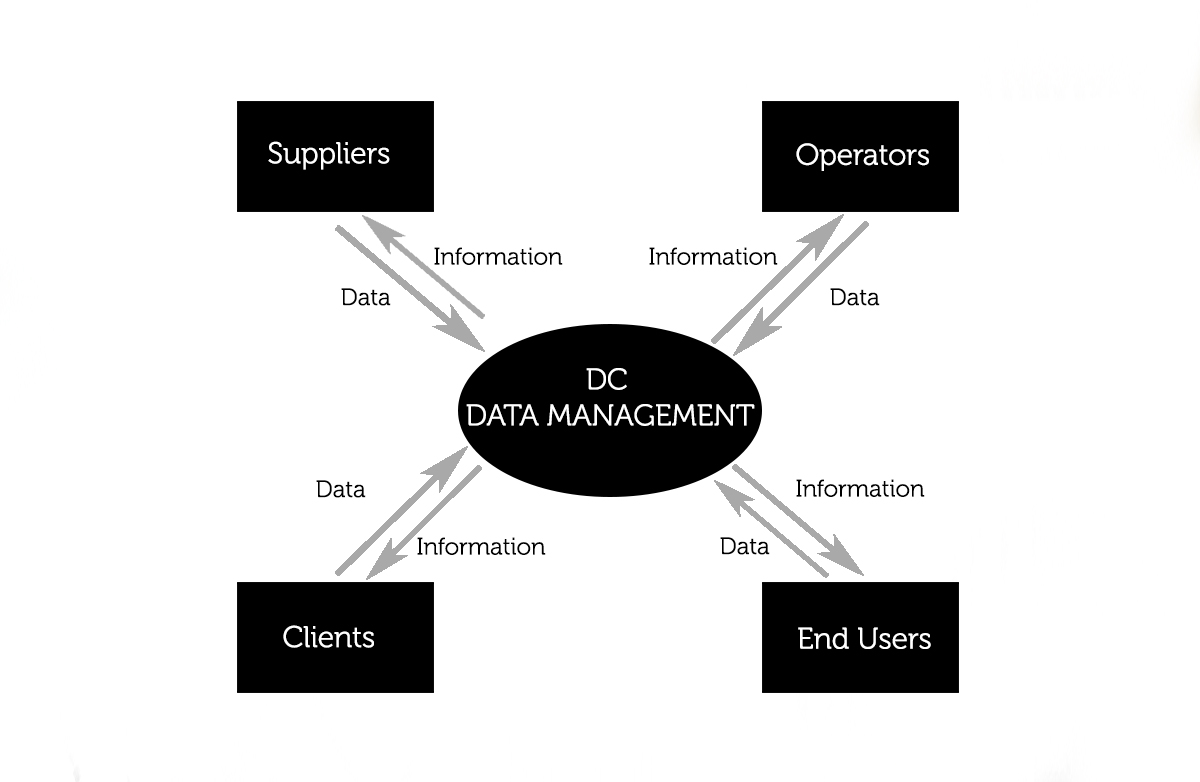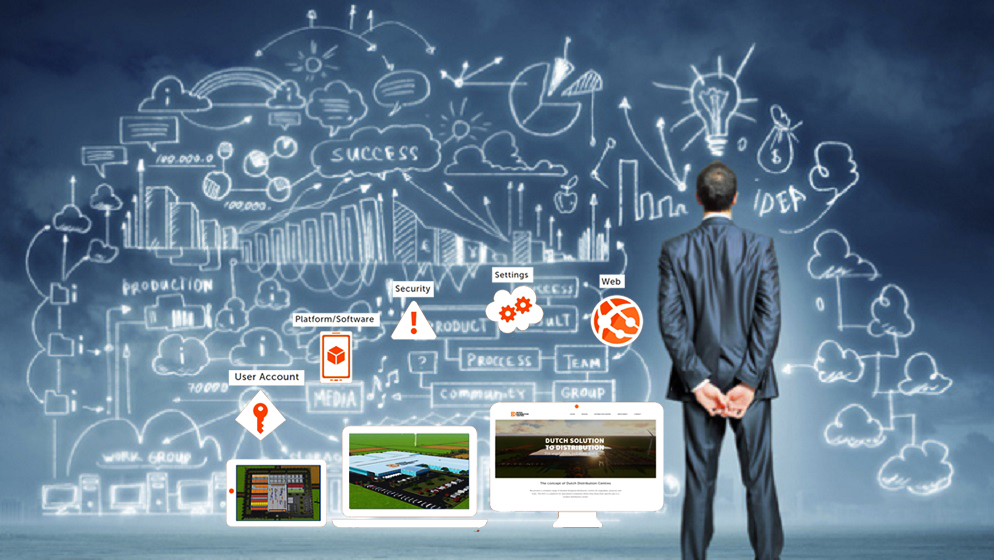DATA MANAGEMENT
Data management should be the back bone of any modern DC or Supply Management System. We defined four different Stake holders in a DC that will generate data and needs information. The four stake holders are: suppliers,investors or operators,clients and end users of the DC. Not all data are equally important for the four different stakeholders. That’s why we want to provide the ability to filter all the information needed.
DATA MANAGEMENT
Data management should be the back bone of any modern DC or Supply Management System. We defined four different Stake holders in a DC that will generate data and needs information. The four stake holders are: suppliers,investors or operators,clients and end users of the DC. Not all data are equally important for the four different stakeholders. That’s why we want to provide the ability to filter all the information needed.
Concept of data management
The concept of Data Management is an integrated system where relevant data in the DC about: inbound, storage, handling / processing, sale and delivery are electronically administered in a central system. The resulting data must be possible to be filtered according to need and relevance for the different stakeholders in the DC. The four stakeholders in the DC have in fact different information needs. It’s quite a difference whether you are growing potatoes, store and process them or you eat them. In the pictures of the various stakeholders we give so schematic and concise as possible which data is generated and what information is important.
Suppliers
The functions of a distribution centre in the value chain of vegetables, potatoes and fruits.
- To overcome time
- To overcome quantity
- To overcome distance
- To overcome credit
- To secure food safety
- To supply a wide range and acceptable quality goods
Investor/Operator
The investor or operator of a DC
Clients
The direct clients of the DC
End users
DC have end users of the produce from the DC.
Filtering
Data filtering in DC can refer to a wide range of strategies or solutions for refining data. This means the data are refined into simply what a user (or set of users) needs, without including other data that can be repetitive, irrelevant or even sensitive. Different types of data filters can be used to amend reports, query results, or other kinds of information results.
Concept of data management
The concept of Data Management is an integrated system where relevant data in the DC about: inbound, storage, handling / processing, sale and delivery are electronically administered in a central system. The resulting data must be possible to be filtered according to need and relevance for the different stakeholders in the DC. The four stakeholders in the DC have in fact different information needs. It’s quite a difference whether you are growing potatoes, store and process them or you eat them. In the pictures of the various stakeholders we give so schematic and concise as possible which data is generated and what information is important.

Suppliers
The functions of a distribution centre in the value chain of vegetables, potatoes and fruits.
- To overcome time
- To overcome quantity
- To overcome distance
- To overcome credit
- To secure food safety
- To supply a wide range and acceptable quality goods

Investor/Operator
The investor or operator of a DC

Clients
The direct clients of the DC

End users
DC have end users of the produce from the DC.

Filtering
Data filtering in DC can refer to a wide range of strategies or solutions for refining data. This means the data are refined into simply what a user (or set of users) needs, without including other data that can be repetitive, irrelevant or even sensitive. Different types of data filters can be used to amend reports, query results, or other kinds of information results.



